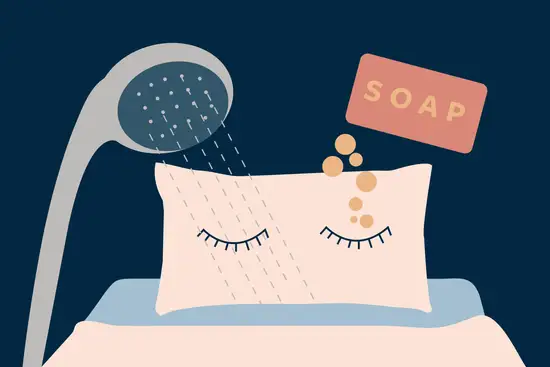
Introduction
In today's fast-paced world, getting a good night's sleep can often take a backseat to our many responsibilities and distractions. However, the importance of prioritizing sleep hygiene cannot be understated. With the rising prevalence of sleep disorders and the negative impact poor sleep habits can have on our physical and mental health, it's crucial to understand the benefits of implementing good sleep hygiene practices into our daily routines. This article will explore the impact of poor sleep hygiene, define what sleep hygiene entails, discuss its benefits, provide strategies for improvement, and offer tips on how to incorporate it into our daily lives.
The Impact of Poor Sleep Hygiene
Poor sleep hygiene can have far-reaching consequences on our overall well-being. Not only can it lead to daytime fatigue and lack of focus, but it can also increase the risk of developing chronic health conditions such as obesity, diabetes, and cardiovascular disease. Sleep disorders like insomnia, sleep apnea, and restless leg syndrome are often linked to poor sleep hygiene practices, further exacerbating the negative effects of inadequate rest. In the long term, consistently failing to prioritize sleep hygiene can impair cognitive function, weaken the immune system, and contribute to mental health issues such as anxiety and depression.

Understanding Sleep Hygiene
Sleep hygiene refers to a set of practices and habits that promote quality and restorative sleep. It involves creating a sleep-conducive environment, establishing a consistent bedtime routine, and adopting healthy lifestyle habits that support a good night's rest. Components of good sleep hygiene include maintaining a comfortable sleep environment with a supportive mattress and pillows, keeping the bedroom dark and cool, avoiding stimulants like caffeine and electronics before bed, and following a regular sleep schedule. By paying attention to these factors, individuals can optimize their sleep quality and improve their overall sleep health.
The Benefits of Prioritizing Sleep Hygiene
Prioritizing sleep hygiene offers numerous benefits that extend beyond just feeling well-rested. Adequate, restful sleep is essential for cognitive function, emotional stability, and overall physical health. When we consistently practice good sleep hygiene, we can experience improvements in memory, concentration, and decision-making skills. Additionally, quality sleep has been shown to regulate mood, reduce stress levels, and enhance resilience to daily challenges. From a physical standpoint, getting enough sleep helps support the immune system, regulate metabolism, and lower the risk of chronic diseases.

Strategies for Improving Sleep Hygiene
Improving sleep hygiene involves implementing simple yet effective strategies into our daily routines. To create a sleep-friendly environment, individuals can invest in comfortable bedding, ensure their bedroom is dark and quiet, and limit screen time before bed. Establishing a consistent bedtime routine can signal to the body that it's time to wind down and prepare for sleep. This could include activities like reading a book, taking a warm bath, or practicing relaxation techniques. Making lifestyle changes such as exercising regularly, avoiding heavy meals before bedtime, and managing stress can also contribute to better sleep quality.
Incorporating Sleep Hygiene into Daily Routine
Incorporating good sleep hygiene practices into our daily lives can be challenging, especially with the demands of work, family, and social commitments. However, by recognizing the importance of prioritizing sleep and making it a non-negotiable part of our routine, we can reap the benefits of improved rest and overall well-being. It's essential to set boundaries around bedtime, create a relaxing pre-sleep routine, and maintain discipline in sticking to a consistent sleep schedule. By gradually implementing these changes and adjusting our habits, we can gradually make sleep hygiene a natural part of our daily lives.
Conclusion
In conclusion, prioritizing sleep hygiene is a critical component of maintaining good health and overall well-being. By understanding the impact of poor sleep habits, defining what comprises good sleep hygiene, recognizing the benefits of prioritizing it, and implementing strategies for improvement, individuals can significantly enhance their sleep quality and quality of life. While it may require some adjustments and discipline, the long-term advantages of investing in good sleep hygiene far outweigh the temporary sacrifices. It's time to make sleep a priority and reap the countless benefits it offers for our physical, mental, and emotional health. Sweet dreams await those who embrace the power of good sleep hygiene.
FAQs
Q: What is sleep hygiene?
A: Sleep hygiene refers to a set of practices and habits that promote quality and restorative sleep.
Q: What are the consequences of poor sleep hygiene?
A: Poor sleep hygiene can lead to daytime fatigue, lack of focus, chronic health conditions, sleep disorders, cognitive impairment, weakened immune system, and mental health issues like anxiety and depression.
Q: What are the benefits of prioritizing sleep hygiene?
A: Prioritizing sleep hygiene can improve cognitive function, emotional stability, physical health, memory, concentration, decision-making skills, mood regulation, stress reduction, resilience, immune system support, metabolism regulation, and chronic disease prevention.
Q: How can I improve my sleep hygiene?
A: You can improve your sleep hygiene by creating a sleep-conducive environment, establishing a consistent bedtime routine, adopting healthy lifestyle habits, investing in comfortable bedding, limiting screen time before bed, engaging in relaxation activities, exercising regularly, avoiding heavy meals before bedtime, managing stress, and maintaining a consistent sleep schedule.
Q: How can I incorporate sleep hygiene into my daily routine?
A: You can incorporate sleep hygiene into your daily routine by setting boundaries around bedtime, creating a relaxing pre-sleep routine, maintaining discipline in sticking to a consistent sleep schedule, gradually implementing changes, and adjusting habits to make sleep hygiene a natural part of your life.


0 Comments